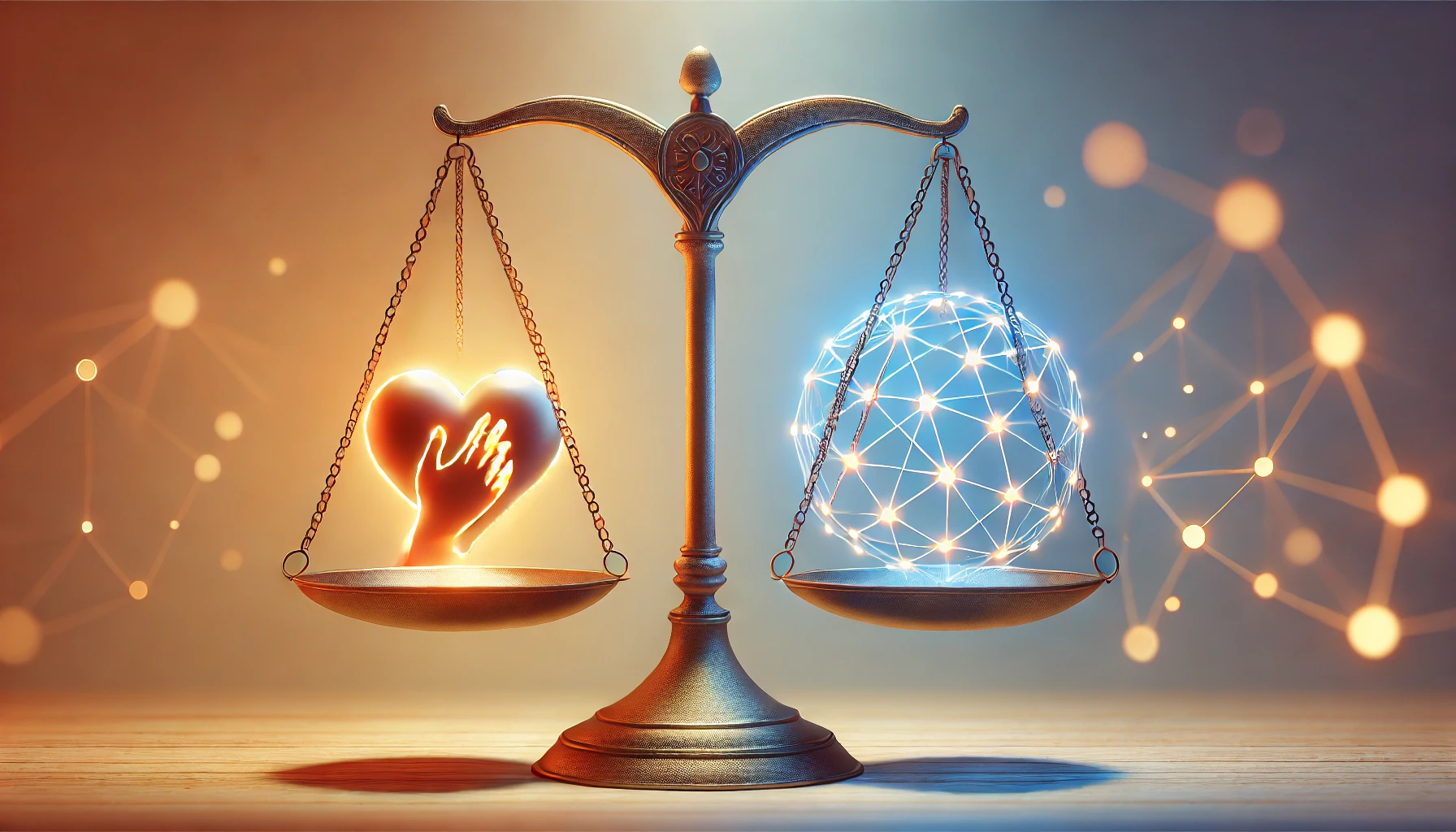Solutions for Compassionate Accountability on Social Media
Discover actionable solutions for balancing empathy and accountability in online interactions to address mental health challenges effectively.
Table of Contents
- Introduction
- Recognizing the Mental Health Spectrum on Social Media Platforms
- Training Moderators to Understand the Spectrum
- Encouraging Peer Support Communities
- Creating Clear Boundaries for Accountability
- Leveraging Artificial Intelligence Responsibly
- Public Awareness and Education
- Conclusion: Toward a Balanced Social Media Landscape
Introduction
As we move from understanding mental health challenges and public perception to actionable solutions, Part 3 delves into how social media platforms and communities can evolve to foster more supportive and empathetic online spaces. This final section explores practical approaches to compassionate accountability, illustrating how society can address complex mental health needs without excusing harmful actions.
Recognizing the Mental Health Spectrum on Social Media Platforms
One of the foundational steps for social media platforms is to create systems that account for mental health on a spectrum. In recent years, platforms like Instagram and Twitter have introduced features aimed at reducing the mental health impact on users. For instance, Instagram’s 2017 feature to “mute” certain accounts helped individuals avoid potentially triggering or harmful content without unfollowing others, a subtle acknowledgment of the impact content can have on mental well-being.
However, these measures remain largely user-driven. Advocates suggest that platforms should integrate more nuanced options, such as in-app mental health support or advisory pop-ups when certain keywords appear. For example, if a user repeatedly posts aggressive comments or negative self-talk, an automated pop-up could suggest mental health resources, offering a non-invasive way to acknowledge the spectrum of mental health needs.
Training Moderators to Understand the Spectrum
For a true cultural shift, social media moderation policies need to reflect a balanced approach to mental health. In 2021, Reddit partnered with mental health experts to train moderators on how to handle crisis situations sensitively. While moderators aren’t expected to act as therapists, equipping them with basic knowledge about mental health issues could reduce the risk of harmful interactions escalating further.
Such training would enable moderators to recognize signs of distress or mental health struggles and take supportive rather than punitive actions. By identifying early warning signs, platforms can help de-escalate situations where individuals are lashing out due to underlying struggles, rather than simply banning or silencing them.
Encouraging Peer Support Communities
In the early 2000s, online forums and support groups emerged as safe spaces for people facing mental health challenges. Today, platforms like Facebook and Reddit still host communities where users offer one another support. Groups such as “#MentalHealthAwareness” or “#MentalHealthSpectrum” aim to destigmatize mental health and provide resources for users who may feel isolated.
For example, Reddit’s “/r/mentalhealth” subreddit has over a million members sharing their struggles, advice, and resources. These communities demonstrate the power of peer support, allowing people to discuss their experiences without judgment. By promoting these types of groups and integrating them into platform recommendations, social media companies can help users find support in ways that don’t solely rely on clinical intervention.
Creating Clear Boundaries for Accountability
While compassion is essential, accountability cannot be overlooked. Mental health advocates emphasize that even within the spectrum framework, individuals must take responsibility for their actions. Some experts propose “accountability pathways” as a structured method of holding individuals responsible while allowing room for personal growth.
On platforms like Twitter and Instagram, where aggression can be quick and impulsive, an “accountability pathway” might mean giving users the chance to apologize or acknowledge their behavior before a more severe penalty, like suspension, is applied. In this way, platforms can encourage reflection while maintaining clear boundaries.
High-profile cases can also model accountability. For instance, when celebrities issue public apologies for harmful behavior, they often set an example for the broader online community. Acknowledging mistakes and demonstrating growth allows individuals to retain their humanity, helping dismantle the binary of “good” versus “bad” that so often defines online culture.
Leveraging Artificial Intelligence Responsibly
Artificial Intelligence (AI) has the potential to play a transformative role in promoting mental health on social media, yet it comes with its own ethical challenges. Some platforms have experimented with AI-driven tools that detect harmful content or behavior. Facebook, for example, has used AI to identify signs of suicidal intent in posts, flagging them for review by human moderators.
Expanding AI tools to recognize aggressive behavior or distress signals can create a more supportive environment, but only if these tools respect user privacy. AI-based interventions should provide gentle guidance, like suggesting mental health resources or offering calming techniques, rather than punitive measures. When implemented responsibly, AI can act as a supportive mechanism, helping users recognize the potential impact of their behavior.
Public Awareness and Education
Ultimately, creating an empathetic online culture depends on public awareness and education. Campaigns like #EndTheStigma, which promote open conversations about mental health, have gained traction in recent years, helping to normalize the spectrum approach. Platforms can amplify such initiatives by integrating educational materials directly into the user experience.
For instance, during Mental Health Awareness Month, platforms might showcase resources on understanding mental health, managing anger, or promoting empathy. By embedding this content within the user interface, platforms reinforce the idea that mental health is part of everyday life, not a hidden or shameful topic.
Conclusion: Toward a Balanced Social Media Landscape
The rise of social media has transformed public discourse around mental health, providing both challenges and opportunities. While call-out culture and public shaming remain prevalent, the mental health spectrum offers a new framework for understanding online behavior in a more compassionate light.
To move forward, social media platforms must balance empathy with accountability, recognizing that mental health issues influence behavior without excusing harm. Through peer support communities, accountability pathways, AI-driven support, and education, a more supportive online environment is possible.
Ultimately, this shift requires a collective effort—from individuals to platforms to society at large. By embracing the mental health spectrum, we can create a digital space where people feel seen, understood, and empowered to grow. And perhaps, in doing so, we can make the online world a kinder, more humane place for everyone.
References
-
Public Awareness in Mental Health by American Psychiatric Association
Comprehensive information on mental health conditions, treatment options, and public awareness initiatives. American Psychiatric Association
-
Mental Health Culture on Social Media by American Psychological Association
This report discusses the impact of social media on mental health, highlighting both positive and negative influences. APA
-
Mental Health Stigma and Advocacy by World Health Organization
Efforts to combat stigma and foster awareness on a global scale. WHO

